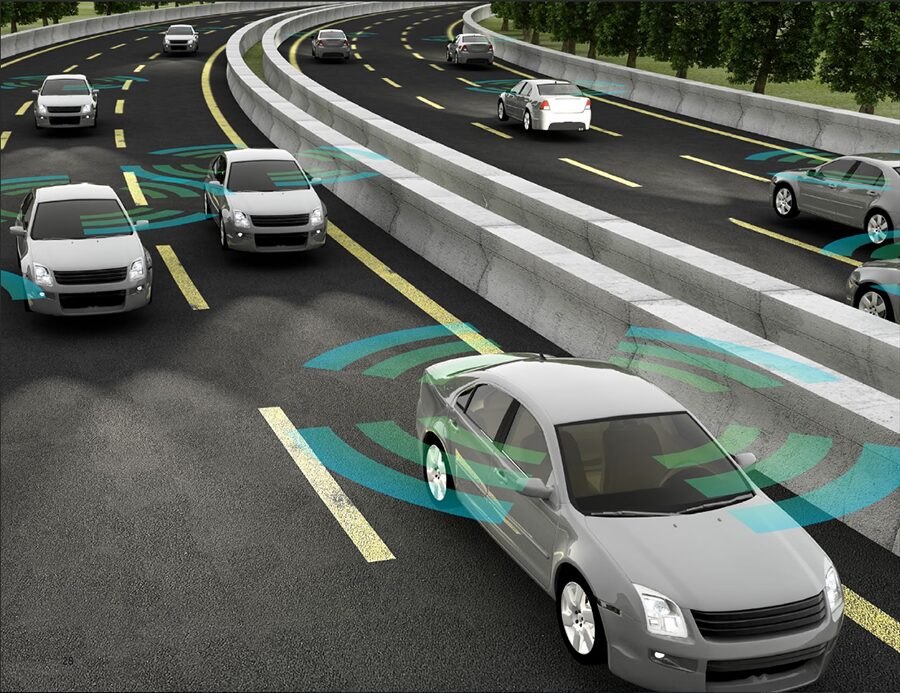It’s difficult to imagine what the world was like before the internet. Many of the things that we take for granted today didn’t exist just a few decades ago. The always-on nature of smartphones has only been common in the last 10 or so years, yet few of us would know what to do without the world wide web at our fingertips.
That has been possible thanks to 3G and 4G standards. Before that, GPRS mobile connections were painfully slow, typically 35 Kbps, just over half the speed of dial-up internet. At that speed, things like video calling, streaming movies, and even just scrolling through Instagram would be nearly impossible.
That’s why there was so much excitement at the launch of 3G. Offering average speeds of between 5 and 6 Mbps, everything we take for granted today became possible. Then when 4G was rolled out in the mid-2010s, consumers again got to benefit from improved speeds and better coverage.
The rollout of 5G has been more subdued though, with some countries still yet to even begin the construction of the necessary infrastructure.
The vast majority of consumers just aren’t interested. Capacity Media published an article citing a study that found “limited enthusiasm” in major markets like the United States and the United Kingdom. Only the tech-loving South Koreans had a majority of consumers that said they were “planning to upgrade”.
This is despite 5G offering significantly faster speeds and reduced latency, both factors that could be useful to both consumers and businesses. Here are some of the benefits that 5G could bring.
Better Gaming

Gamers have benefited greatly from the improvements of 4G, as well as the more powerful hardware installed in modern smartphones. Together, these technologies have allowed people to play titles like Call of Duty on the go, without compromising on the quality of the gameplay.
Without the improved speed from 4G, these games would lag which, in the worst scenarios, would make them unplayable. 5G promises to improve this even further, providing real-world download speeds of up to 1 Gbps. That’s 50-100 times faster than 4G.
It also promises theoretical latency of just 1 ms, though the real-world figure is around 20 ms. Latency is important to gamers because it affects the smoothness of online play. A ping of over 150ms is usually a problem for gamers, as it can lead to erratic and jerky movements by their character and cause them to lose through no fault of their own.
4G can achieve a ping of 50 ms, but 5G will offer a significantly better experience.
For players of online card games like those on PokerStars and puzzle games like Scrabble GO, these improvements won’t make as much difference, since they don’t need the ultra-low latency that games like first-erson shooter require. However, 5G can still offer an improved experience through faster loading times and a more stable connection.

Video Streaming
Although the television is still very important and popular today, video streaming services like Netflix, Hulu and Amazon Prime Video have changed the way we consume our favorite shows and movies. 4G technology has made it easy to watch content on the go, meaning you can stay up to date with your favorite TV show by watching it on the train home.
Smartphone screens have also improved a lot since the release of 4G. Today, almost all new mid-range and flagship devices come with a full 1080p HD screen. However, more devices are beginning to hit the market with a 4K screen, with more models likely to follow in the coming years.
To make the most of this 4K display, you’ll need to watch 4K content. And while most streaming platforms support the higher resolution, your 4G connection will struggle to offer a buffer-free 4K experience.
The 100 Mbps speed of 4G can theoretically carry a 45 Mbps bit-rate 4K stream, but most consumers won’t actually get such high download speeds in the real world. In comparison, 5G will even handle 4K streams with high frame rates without any problems at all.
Driverless Cars

If slightly better video quality and smoother gaming don’t get you excited, then the prospect of driverless cars might. Companies like Google, Tesla, and Uber have been experimenting with autonomous vehicles for many years now, and the technology has come on leaps and bounds in that time.
However, seamless communication between vehicles is necessary for our roads to be ready for a huge wave of driverless cars to be released on public highways.
One of the problems with current infrastructure is that 4G networks don’t have enough capacity for millions of cars and road sensors to be connected. 5G increases the capacity of the network dramatically, making driverless cars more feasible.
The low latency of 5G is also an important factor. In the same way that video games appear jerky and unresponsive when latency is too high, the same could happen if a driverless car suffered from a lag in its connection. The difference here is that, in the real world, a late decision by the computer in a driverless car could be fatal in the same way a human driver not paying attention can.
5G’s 1 ms latency would be sufficient for autonomous vehicles to communicate quickly enough.
Remote Surgery
Another way that the world could benefit from 5G, beyond faster download speeds, is in the area of medicine. Currently, surgeons need to be in the theater with their patients to be able to operate on them.
This means that people living in remote areas and more deprived regions are less likely to have access to top surgeons. Seriously ill patients often don’t have the luxury of being able to travel, so the surgeon needs to travel to them.
5G could put an end to that by allowing operations to be conducted remotely. The low latency of 5G could make it safe for a surgeon to remotely control a robotic arm, making it possible to perform surgery on people in different countries on the same day.
Trials are already underway, with researchers at King’s College London working with Ericsson to create 5G-enabled telesurgical equipment.
Conclusion
Despite the lack of interest from consumers, 5G offers a whole host of benefits to the world, from better online gaming through to advancements in medicine. Even with slow uptake, these benefits will eventually make their way into everyday life, though it could take several years for the potentials of 5G to be fully realized.



